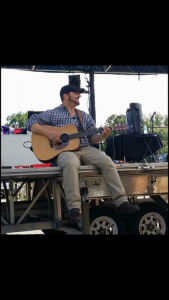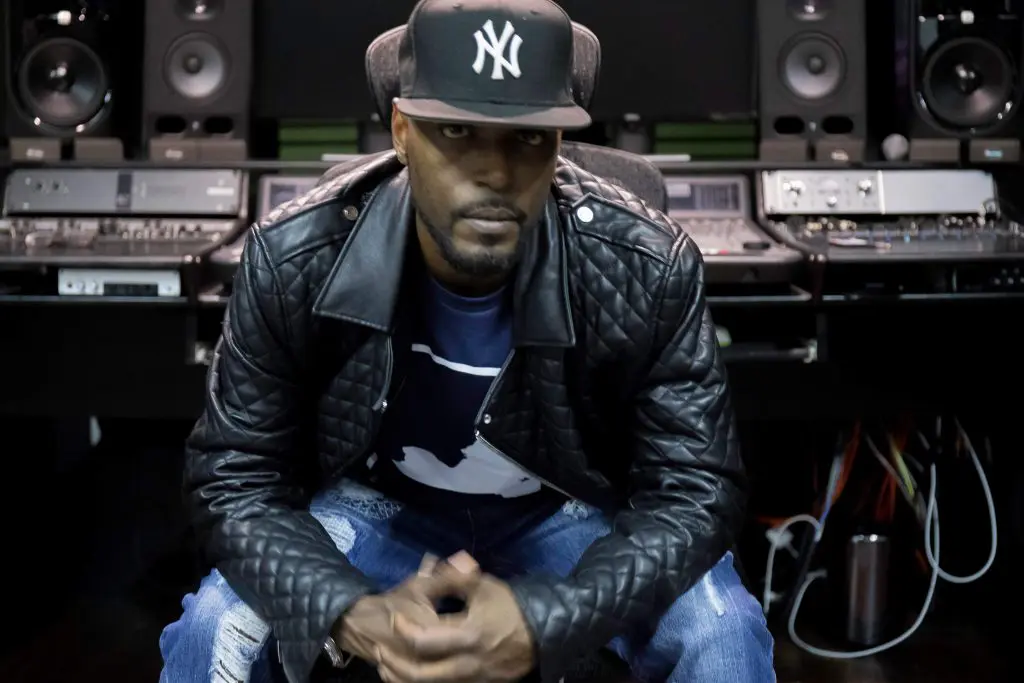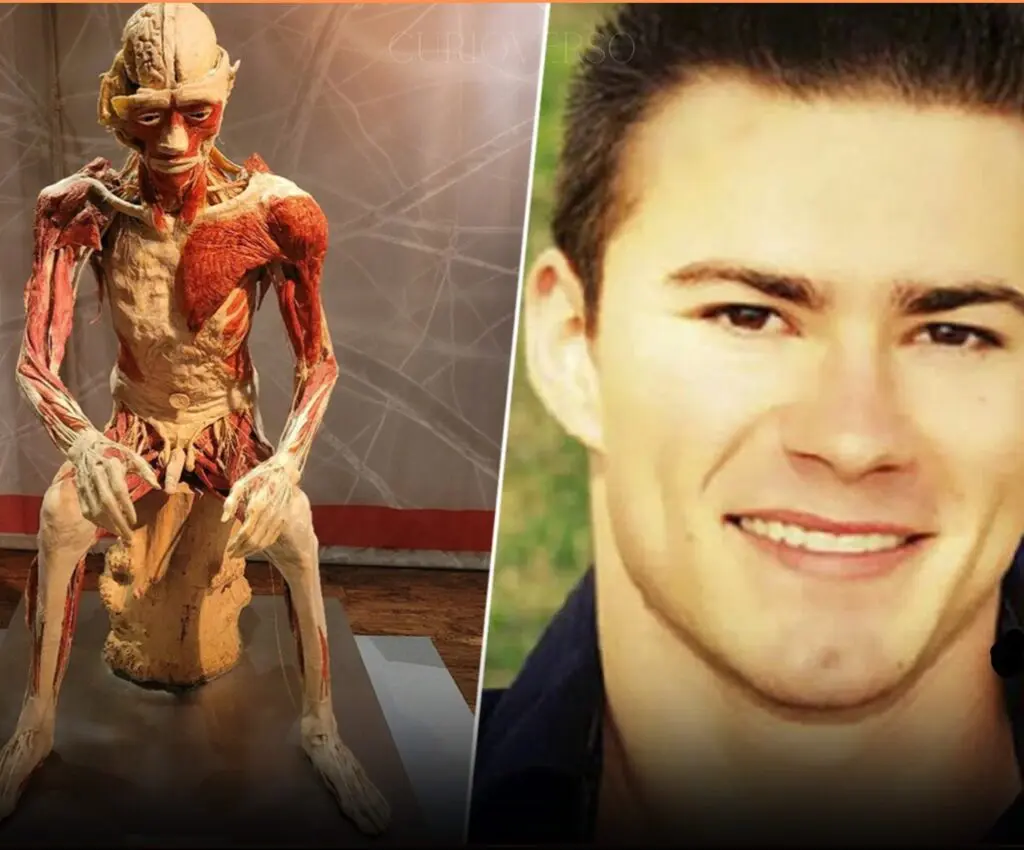I had a music program in every school I went to. But I was only in one. Not because I wasn’t interested, but because there was never any specific urging for people to take music. Math, science, social studies, gym? No getting around those. But our schools didn’t value music so much. Did I mention I hated school?
Josh Casano teaches music and chorus at Schenectady Public Schools. And I am happy to know that in Schenectady, music education is in good hands.
I sit down with Josh and we talk about school shopping at swap meets.
RRX: Music, like all creative pursuits, is very “left-brain/right-brain,” There’s creativity, but also language and math involved. And teaching is tough no matter the subject. What’s your approach to teaching music to schoolkids?
 JC: I’m honest. I get to teach topics I really enjoy and my emotions are genuine. Also, I find that there has to be a way to relate the content to either current music or to events and experience. I teach high school. I think I have an easier time making lessons relevant to my students and their personal experiences and connections. The majority of my research has been based on Culturally Responsive practices in an urban classroom, having the opportunity to be teaching Music in Our Lives encompasses the history of Western music, history of hip hop, rock and roll, music production, world music and more. I am lucky to teach in such a diverse population that, these topics remain relevant and engaging.
JC: I’m honest. I get to teach topics I really enjoy and my emotions are genuine. Also, I find that there has to be a way to relate the content to either current music or to events and experience. I teach high school. I think I have an easier time making lessons relevant to my students and their personal experiences and connections. The majority of my research has been based on Culturally Responsive practices in an urban classroom, having the opportunity to be teaching Music in Our Lives encompasses the history of Western music, history of hip hop, rock and roll, music production, world music and more. I am lucky to teach in such a diverse population that, these topics remain relevant and engaging.
RRX: Schools spend a lot on sports. The football team gets the stadium, whereas the marching band might just have to buy their own instruments. Why do you think the priorities are like this? And how do we convince schools to spend more on music and the arts?
JC: I think that is a regional question. Schools like Schenectady have been very supportive of the arts. Niskayuna, Albany, Shenendahoa, North Colonie, etc…all have great fine arts programs and the communities continue to support them. We have all been hit hard by recent events and budget cuts but the importance of your Fine Arts programs are not lost in this area. Arts are still important and are given the consideration just as much as sports. This is especially true given the growing music and art scene in the Capital Region and Hudson Valley.
RRX: Teaching is really a balance of the bell curve. Some kids will struggle with chapter one, while the kid next to them finishes the whole book a few days after getting it. How do you keep music interesting for the adept, which keeping it approachable for the struggling?
JC: It is always great when I have students who grasp concepts faster; that are not shy. They are the ones that are able to help their classmates when the uncertain students need assistance. I try and rely on the system of having students help each other. This allows me to really get some one-on-one time with the students that need a little more. Often times, I will have written directions posted as I give them orally to ensure understanding of what is being asked. We need to find so many ways to make sure our students can understand what we are teaching and what we are asking of them.
RRX: You’re also a musician, and I’m sure teaching music forever keeps it fresh for you. I saw a picture of your pedal rig. It was impressive, and I can only guess that you buy 9 volt batteries by the case. What’s your dream combo of, say, five pedals, and why?
JC: Wow! What a question. Well, I would love to keep my loop station. It’s a Boss RC300. It has three separate tracks for recording and overdubbing. Each track also has a start/stop. I also have a whole start/stop to stop everything at once. It really is a great loop station. If I had to create an everyday useable rig, I think it would go something like this: Callie ’76 Compressor into an AnalogMan, King of Tone, into Strymon Blue Sky then into a Keeley Katana. Versatile for just about any genre and easy to carry. Lol. Much easier than what I was dragging around to gigs for the past couple years.
RRX: You studied classical guitar. I always think acoustic when I hear that someone is classically trained. But really, it’s the metal players that were all classically trained. So I guess it could go either way. What’s the best thing about playing acoustic vs. electric?
JC: I think my playing has been acoustic because I never really had a focus on electric. I grew up listening to The Beatles, Hendrix and Led Zeppelin but my early introduction to music was The Kingston Trio, Peter, Paul and Mary, Jim Croce, James Taylor and John Sebastian. I was folk before I was rock, haha. But as I got into middle school and high school I discovered Alice in Chains, Tool, Rush, The Allman Brothers Band, Phish, The Grateful Dead and more and I began to love electric.
I used to play a lot of the rock tunes as I was learning tab and chord structures but I always practiced on my dad’s guitars. He had these beautiful guitars. He had a 1960’s Gibson B25 and a 1970 Gibson J50. I loved them and the sound they made so I just was drawn to them. I have used the J50 to gig with for the last however many years now and I just love it. It’s a beast and has a great low end. It’s warm and full and just sounds great. I have a Martin D-18 and I’d rather play the Gibson. Recently I went back to my dad’s old 1962 Gretsch Chet Atkins Country Gentleman. Since COVID, I really wanted to focus on changing my direction. This did it lol. Now that I have the space and time, I am diving back into the electric players a lot more.
RRX: You have a new track out that we play on Radioradiox. Can you tell us about it? What inspired it? And is it part of an upcoming EP, or is one coming? And as a side question, do you give your students your music, or do you have any qualm about that?
JC: The new track is called “Slow Jam”. It came out of a couple chords I have been messing with for a about a year now. I have been writing a lot with my brothers-in-law. This came from a meld of all of our styles. Allan and I have been writing music for a long time and we’ve had success with a few of our tunes like “For the Ride”, which we did with Mike Tymus and our song “Call My Own”. “Call My Own” was born from a basement session weekend a few years ago that included Mike, Allan, and Derick Borst. Derick has been my brother in music and life since 1999. We used to live to make music and had a band with Matt Bruno called Rooted Philosophy. When I met my wife, I met Allan and we just jammed. It was great. Within the past years Victor Cornette entered the picture. What a great musician as well. Allan, Victor and I worked together to make “Slow Jam”. Victor played bass and Allan helped me guide the song melodically. Allan has this style about him and his writing that makes me think of a mix of Glass Animals and Slightly Stupid. I kind of just went that way with it.
RRX: This is where you answer the question I didn’t ask. Educate, enlighten, emote – the floor is yours.
JC: I have just completed a studio renovation in my basement (Small Time Studio) and am now ready to finish recording the rest of my first E.P (no good title yet). It should be out in June and has some of the area’s best appearing on it. Musicians like Derick Borst, Dave Gleason, Matt Bruno, Mike Lawrence, Brian Chiapinelli, and a host of others. I really like the community that happens when music is being made and to be able to capture it all together on this EP is going to be amazing! I am really excited to put this out and perform again in support of this album. I love the covers gigs a lot. People always love to sing a long and I feed on that but it is time for me to tell my story with my friends.
Author
Staff
You may also like
Continue reading





 RadioRadioX
RadioRadioX